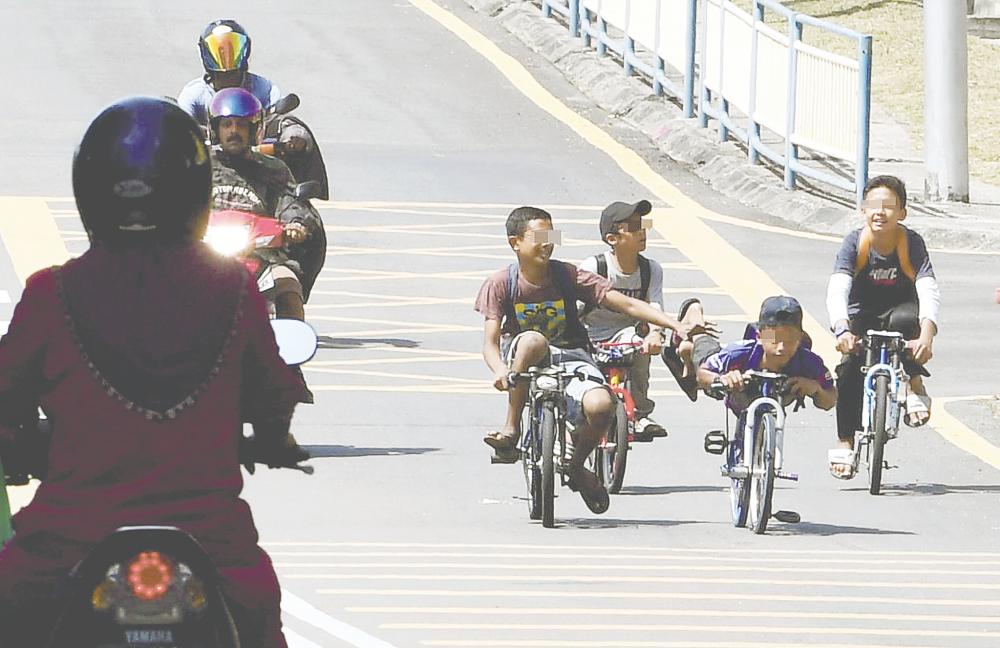PETALING JAYA: With bullying cases in schools, ragging incidents in tertiary institutions, the mat rempit menace, basikal lajak and other forms of indicipline being highlighted in the media so often, is the old adage “Spare the rod and spoil the child” outdated, or even more relevant to parenting today?
Universiti Teknologi Malaysia Faculty of Educational Sciences and Technology senior lecturer Dr Lee Shih Hui said striking a balance between guiding, nurturing and disciplining children can often feel overwhelming, especially when deciding how much control to exert.
She said parenting requires a delicate balance, as too much control may stifle a child’s development, while too little could lead to behavioural challenges as they grow into their teens and adulthood.
“Instead of exerting excessive control, parents should focus on fostering boundaries. During early childhood, parents should act as boundary-setters for acceptable behaviour and societal expectations,” she said, adding that as gatekeepers, parents are expected to guide children through verbal and behavioural reinforcement while demonstrating positive examples themselves.
She said using praise and rewards can encourage children’s efforts to acquire positive skills, and as they grow, parents can guide them to establish their boundaries and equip them to confidently navigate societal expectations.
Lee emphasised that authoritative parenting, which is a balance of warmth and control, is the most effective style for raising well-rounded children and helps prevent them from having anti-social attitudes.
“This approach creates a psychologically safe environment in which children feel supported while exploring their independence. Unlike ‘authoritarian’ parenting, which is characterised by high control and low warmth, authoritative parenting fosters confidence and security.
“Authoritarian parenting often leads to children hesitating to step out of their comfort zones, as their decisions are frequently doubted or opposed,” she said, adding that traditionally, many Eastern cultures leaned towards authoritarian parenting, in which opposing parental decisions are considered disrespectful.
“Without clear guidance, children may struggle with self-discipline, poor social skills, and emotional weaknesses, which may encourage anti-social behaviour. Hence, effective control should always be followed with clear explanations.”
She said traditionally, Eastern parenting styles emphasised strict authority, but societal transformations have encouraged more open and equal parent-child relationships.
Universiti Teknologi Malaysia psychology lecturer and deputy dean Prof Dr Siti Aisyah Panatik said beyond the family, communities play a significant role in shaping children’s behaviour, values and overall development.
“Daily interactions within the community help mould a child’s social skills, emotional resilience and world view. Supportive communities act as role models, instilling respect, empathy and responsibility in children while providing moral assistance to parents and caregivers,” she said.
She said while public awareness campaigns and research findings are gradually influencing legal and societal changes, and promoting more child-centred approaches to discipline, she advocates healthier discipline strategies, including non-violent communication, positive reinforcement and clear boundary-setting through discussions.
“These methods foster emotional well-being, mutual respect and problem solving skills, strengthening relationships between parents, other caregivers and children.
“Being a good parent doesn’t mean being perfect, it means being present, supportive and willing to grow alongside your child,” she said, adding that parenting is challenging but profoundly rewarding.









